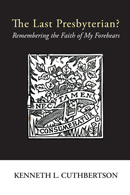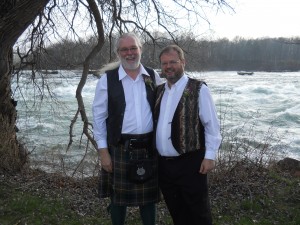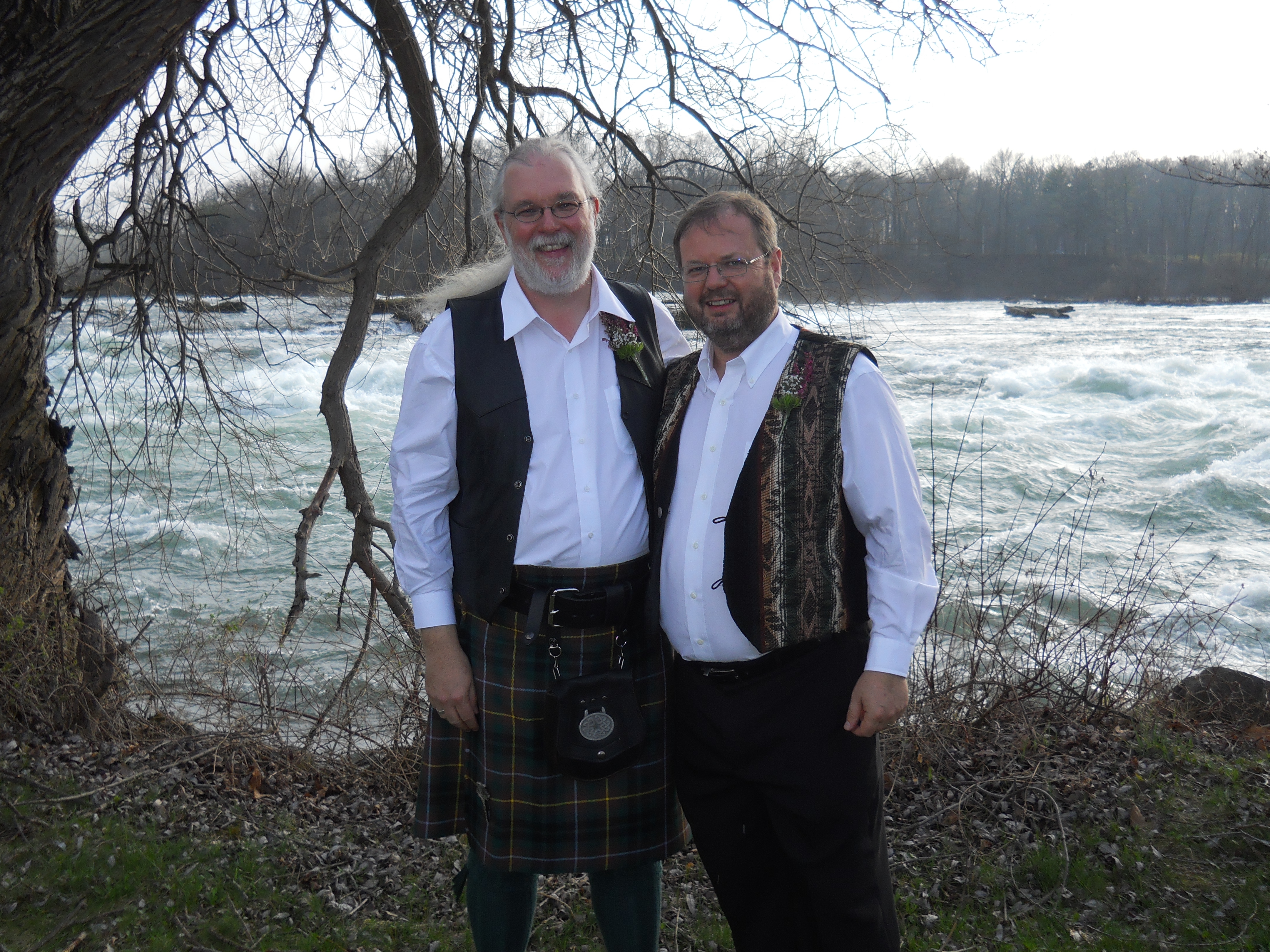The Last Presbyterian? Conversations with Ken Cuthbertson IV
 Director’s Note: This week we discuss Ken Cuthbertson’s new book, The Last Presbyterian? Remembering the Faith of our Forebears (Wipf and Stock 2013). In this final installment of our conversation, we discuss church schism, “Bleeding Kansas”, LGBTQ inclusion in the church, and the mystery of God’s living presence in the church.
Director’s Note: This week we discuss Ken Cuthbertson’s new book, The Last Presbyterian? Remembering the Faith of our Forebears (Wipf and Stock 2013). In this final installment of our conversation, we discuss church schism, “Bleeding Kansas”, LGBTQ inclusion in the church, and the mystery of God’s living presence in the church.
Cynthia Holder Rich: You discuss the honoring of oaths and vows at length and their relationship to Presbyterian tradition and Reformed theology. In our current schismatic era, many PCUSA pastors have broken their ordination vows “to further the peace, unity and purity of the church” to leave the denomination and join another or to join in forming a new communion. How does this emphasis in our tradition and theology speak into our current situation?
Ken Cuthbertson: I had not yet come to terms with my sexual orientation as a gay man when I was ordained in 1982, and I took my ordination vows sincerely and honestly… though not without some qualms. Not long afterwards I finally accepted the reality, came out as a “self-affirming, practicing, gay man”, and entered into a longterm relationship. The way by which I then chose to “honor the discipline” of the church was in not seeking a “called, installed” position, but still hanging in as a Minister of the Word and Sacraments. In so doing I was, as best I could, honoring my ordination vows while also following my ongoing sense of call to be a Presbyterian minister. Staying allowed me to work for change, as I was able… but I am sure not going to get much of a pension out of it!
As I see it, those who are leaving now are not being forced to affirm or embrace anything contrary to what they believe. They are simply being asked to co-exist on an equal basis with those of us with whom they differ concerning ordination and marriage. I do think that some of them, at least, fear they will eventually be forced against conscience on these issues. But, as I see it, “local option” is local option for them, as well as for us. For many, that does not seem to be enough. They are unwilling to continue to live and co-operate with us. In a way it strikes me as an admission that their witness has failed.
The polity of American Presbyterianism has always recognized that our denominational bodies are voluntary associations, and that there may be times when our paths diverge. I have no quarrel with those ministers, and elders, who have felt “called elsewhere” in these changing times and departed with integrity. Their numbers include good friends of mine from seminary, and even some members of our family. Their departures make me sad, and have caused some awkward moments, but I honor their choices.
What does trouble me is when those who decide to leave actively seek to influence others to come with them, and actively use their offices to do so. That is where I see them really violating their ordination vows, and that – I do believe – is a serious sin.
CHR: Thanks for outlining the history of the abolitionist movement in the Midwest. Here in Kansas, the time known as “Bleeding Kansas” still operates powerfully for many. Kansas has also recently passed what is reputedly the strongest anti-human trafficking statute. The abolition movement energized many in the Christian community, and many Presbyterians took part. Human trafficking and modern slavery seem to not be gaining the ground that 19th century slavery did with people of faith, including Presbyterians. Do you see helpful points in our history, tradition and theology that could be used to engage people helpfully to act against slavery today as we have in the past?
KC: First off, in deference to a good friend who is currently doing his PhD dissertation on this, I would note that we too often jump immediately from “human trafficking” to “sex trafficking” in ways that are not only inaccurate but unhelpful. So we need to take care in what we are saying. On the other hand, immigration and border issues provide a view of the flip side of this question, revealing so much deep-seated prejudice against the migrant community. This is something we are very conscious of, and rather horrified by, in New Mexico… especially some of what we have seen happen in Arizona.
The focus of my book is on the more “sectarian” Presbyterians of old, rather than the mainstream… which had a very different experience of the struggle around slavery. The “fringe” Presbyterians were more of one mind, and thus more free to advocate and act. Once those old Presbyterians were convinced something was according to God’s desire and will, they latched on to it and didn’t let go (as I and others have also done on LGBTQ issues). They were always a minority, but a persistent one. The folks I know who have engaged Border issues over the last generation are not unlike those Underground Railroad zealots of old… which is both a great strength and something that can make the mainstream resistant (for as long as it can get away with it). People of faith concerned with human trafficking will, without doubt, have to follow a similar path.
As with our Jewish cousins, and our African American sisters and brothers, I think the best part of Presbyterian and Reformed praxis around such issues in the past has been rooted in the exodus narrative, the prophets, and the biblical psalms. But, as before, that biblical emphasis has to be coupled to raising awareness of what is really happening now, and providing opportunities to respond “as willing and able.”
I do wish that the movie Amazing Grace had been more successful in raising awareness about contemporary slavery when it came out several years ago. That was one of the intentions of the makers. The film itself was quite good, and can still serve as a tool for raising awareness.
 CHR: Where do you think we are in the journey toward equity and opportunity in ordained service in the PCUSA for all?
CHR: Where do you think we are in the journey toward equity and opportunity in ordained service in the PCUSA for all?
Paul’s all-inclusive vision of Christ’s body – “neither Jew nor Greek, male nor female, slave nor free” – is still to be fully realized.
As far as LGBTQ concerns go, I think we are at the transitional cusp, and I really do not think we will perish in the process. If the upcoming General Assembly finds a way to permit ministers who so choose to officiate at same-sex weddings, and sessions who so choose to permit church facilities to be used for same-sex weddings, we will finally have cleared away the explicit prohibitions vis a vis both marriage and ordination. But, that does not mean the PCUSA will have positively affirmed or endorsed marriage equality or ordination for LGBTQ folks. That affirming and welcoming reality is yet to emerge in our still deeply divided body. I think it will, as it has slowly but surely for women and others.
As always, new challenges are emerging, and will continue to do so. Our transgendered kindred continue to face misunderstanding and deep resistance. And, the PCUSA continues to be pretty elitist in terms of education and socio-economic status… seminary is expensive, and so are salaries and benefits for ordained ministers! There certainly are not now the constituencies of farmers, weavers, and shoemakers (or their equivalents) that once populated the pews of the kirk in Fenwick, or the mill towns of western Pennsylvania, or the farming communities of Iowa and Kansas. Part of our historic success in places like New Mexico was that we brought education and healthcare to previous generations… but then we often did not succeed in continuing to reach out and engage later generations of the working poor and immigrants.
CHR: In your postscript, you name Presbyterians, at our best, as “a people of the Mystery of the Living Presence”. This is a tantalizing title! Outline what you mean by this.
We are back at the burning bush… the principal symbol of the Reformed Tradition. “The Living Presence” is how my friends Rabbi Nahum and John Philip Newell like to translate the Name of God (“YHWH”), the God who says “I AM WHO I AM” or “I WILL BE WHO I WILL BE.” Rabbi Nahum stresses that the Name is a verb, not a noun. Our God is pure Being-ness… which means to me that God is always now, and never truly comprehended. As a people of God (perhaps rather than the people of God) we are invited into a dynamic ongoing, ever-changing but ever-the-same, relationship to and with this Living Presence. It is a sense I pick up in Second Isaiah or, at times, in Calvin’s writings. In Johannine terms it is a relationship with Light, Life, and Love itself… tented among us (as Christians) in the fully en-fleshed person of Jesus, but simultaneously inhering in the whole cosmos. It burns in us, if we will let it, but we are not consumed.

